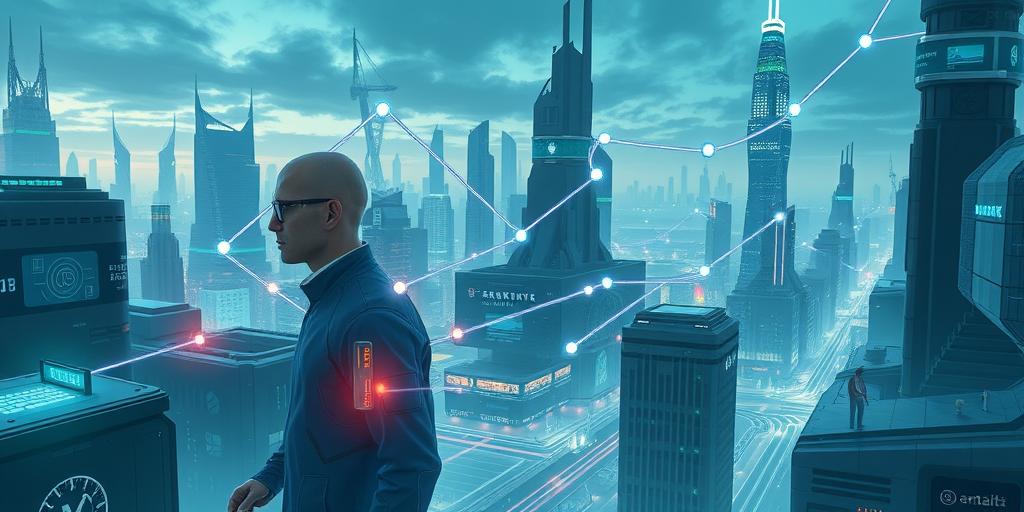Have you ever considered how reliant we’ve become on technology? It’s crept into every aspect of our lives, from the mundane to the extraordinary. But is this technological dependence, especially with the rise of the Internet of Things (IoT), pushing us towards a potential societal tipping point? Let’s dive into the fascinating world of the IoT and examine its implications. Are we becoming too reliant, or are the benefits simply outweighing the risks?
The Allure of the Internet of Things
The Internet of Things (IoT) is revolutionizing our world, connecting everyday objects to the internet. Think smart homes, wearable fitness trackers, and self-driving cars. It’s making life easier, more efficient, and more convenient. Smart refrigerators order groceries when supplies are low; smart thermostats adjust temperatures for energy savings; and smart home security systems provide constant alerts and updates. The potential applications seem limitless. The seamless connectivity and automation offered are undeniably tempting, and the marketing surrounding these devices frequently highlights this convenience.
The Convenience Factor: Is it Worth the Cost?
Let’s be honest, the convenience factor is undeniable. Who wouldn’t want a smart home that anticipates your needs and automatically adjusts to your preferences? However, this allure of convenience comes at a price – both literally and figuratively. Many people find they spend hours setting up and customizing their devices, a task that can be quite frustrating for those not tech-savvy. Furthermore, the initial investment can be significant, and ongoing maintenance and subscription fees can add up quickly. Are these costs justified by the added convenience?
The Dark Side of Hyper-Connectivity: Dependence and Security
While the IoT presents undeniable advantages, it also raises concerns about over-reliance and security. The more we integrate technology into our lives, the more vulnerable we become to technological failures and cyberattacks. Imagine a world where a massive cyberattack disables critical infrastructure, such as power grids or healthcare systems. The consequences would be catastrophic.
Security Risks in an IoT World: Are Your Devices Safe?
Security breaches in IoT devices are increasingly common. Many devices lack robust security measures, making them easy targets for hackers. This can lead to data breaches, identity theft, and even physical harm. The sheer volume of connected devices in our homes and workplaces presents a massive, vulnerable attack surface. With each device connected to the internet, this surface grows, increasing the probability of a successful cyberattack.
The Human Element: Skill Gaps and Digital Literacy
Another key issue is the growing digital divide. Not everyone has the same level of access to technology or the same level of technical expertise. This creates a dependence on tech-savvy individuals or companies to manage and maintain these systems. This technological dependence impacts society’s ability to adapt when technology fails or when expertise is unavailable.
Finding a Balance: Embracing Technology Without Losing Ourselves
The question isn’t whether or not technology is useful – clearly, it is. The challenge lies in finding a healthy balance. We must leverage the benefits of the IoT while simultaneously addressing the potential drawbacks, mitigating risks, and ensuring that technology serves humanity, rather than the other way around. We must promote digital literacy and ensure equitable access to technology and support.
Developing Responsible Technology Use: A Collective Effort
This requires a multi-pronged approach: developing stricter security standards for IoT devices, improving cybersecurity awareness among consumers, and promoting responsible technology use. Educational initiatives should teach people how to safely use technology and manage their digital footprint. Governments and industry leaders must also work together to create regulatory frameworks that encourage innovation while mitigating risks. It’s vital to foster a culture of digital responsibility to reap the benefits of technology safely and securely.
Navigating the Future of IoT: A Cautious Optimism
The future of the IoT holds immense potential, but we must proceed cautiously. By prioritizing security, addressing the digital divide, and fostering responsible technology use, we can harness the power of the IoT to improve our lives without sacrificing our independence or security. Let’s embrace the convenience and innovation the IoT offers, but let’s do so thoughtfully and consciously.
Embrace the advancements, but always maintain a critical eye and a healthy dose of skepticism. The future is in our hands, and it’s up to us to shape it responsibly. Let’s navigate the exciting world of the IoT mindfully, ensuring that technology remains a tool for progress and not a source of dependence or vulnerability.




